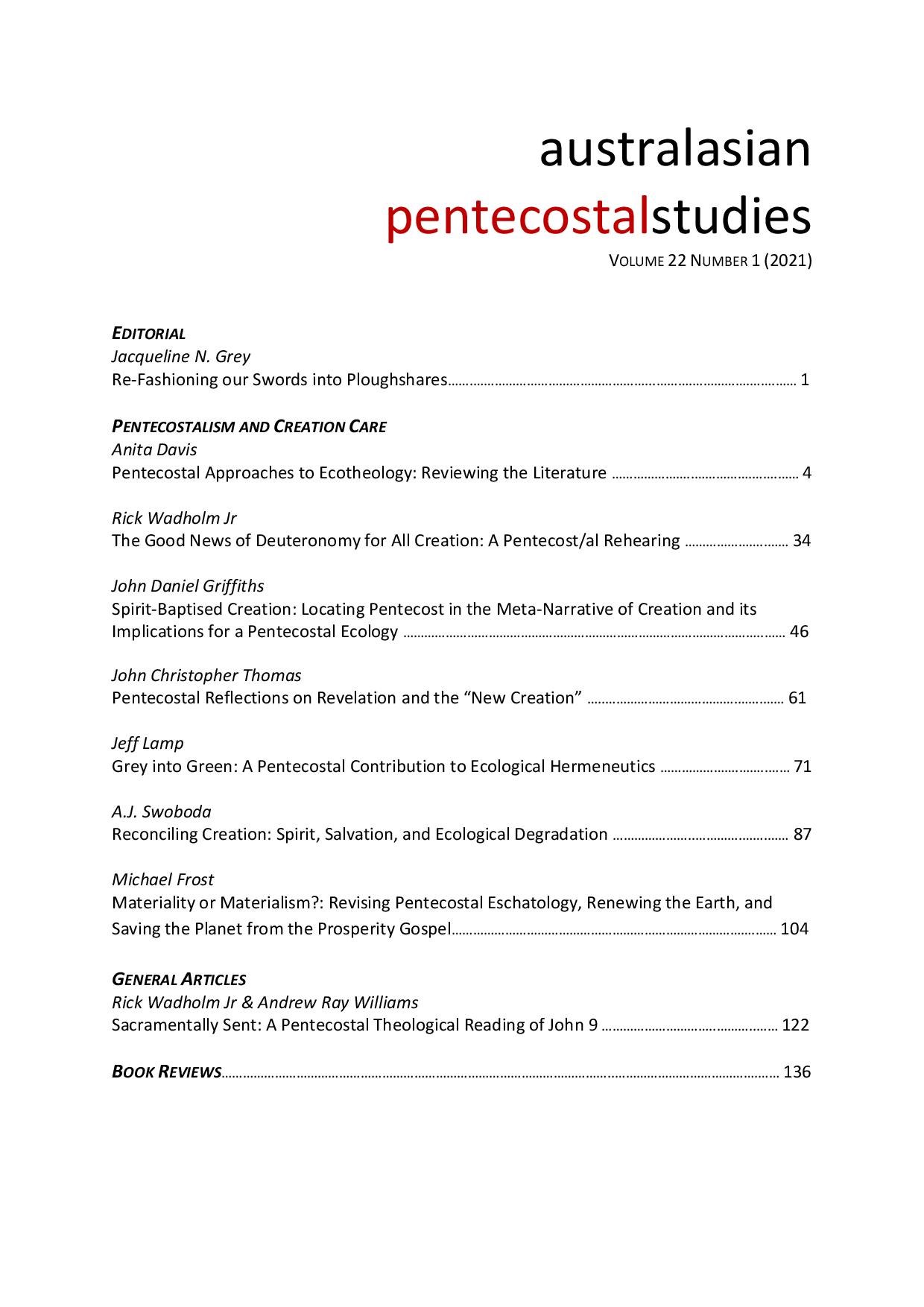Pentecostal Reflections on Revelation and the "New Creation"
Abstract
Discussions about the environment and the believers’ responsibilities in creation care appear to be at an all-time high. From the melting, and consequent receding, of the polar ice-caps and glaciers, to cases of the pollution of water supplies and the air we breathe, it is clear that creation as we know it is not what it used to be. Alongside these physical global changes, the church has become increasingly aware and appreciative of the biblical mandates to be guardians and caretakers of the creation that has been entrusted to us. As it happens the Book of Revelation is frequently drawn into these discussions by interpreters who often reach diametrically opposite conclusions, who, nonetheless, appeal to the book for biblical support for their interpretive positions. More times than not, such appeals draw on one specific aspect of the book’s relevance for this topic. However, the book’s witness on this issue is thicker and more complicated than a one-dimensional approach is able to appreciate. In what follows, I offer some reflections on this challenging issue as a Pentecostal who has devoted a fair amount of attention to the Book of Revelation over the course of the last couple of decades.
Downloads
Published
How to Cite
Issue
Section
License
Authors who publish with this journal agree to the following terms:
- Authors retain copyright and grant the journal right of first publication with the work simultaneously licensed under a Creative Commons Attribution License that allows others to share the work with an acknowledgement of the work's authorship and initial publication in this journal
- Authors are able to enter into separate, additional contractual arrangements for the non-exclusive distribution of the journal's published version of the work (e.g., post it to an institutional repository or publish it in a book), with an acknowledgement of its initial publication in this journal.
- Authors are permitted and encouraged to post their work online (e.g., in institutional repositories or on their website) prior to and during the submission process, as it can lead to productive exchanges, as well as earlier and greater citation of published work (See The Effect of Open Access).


